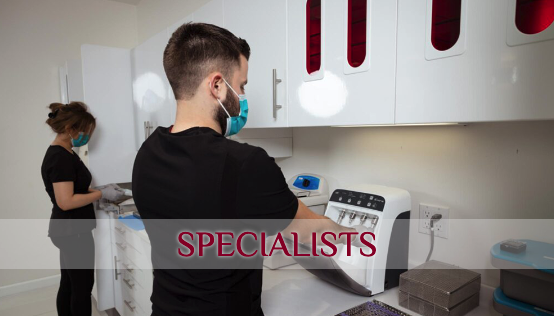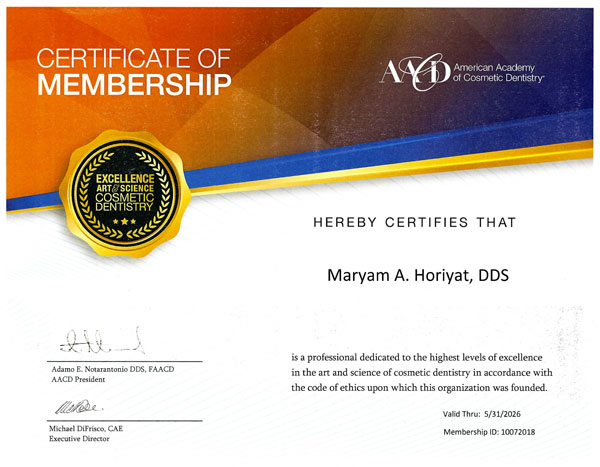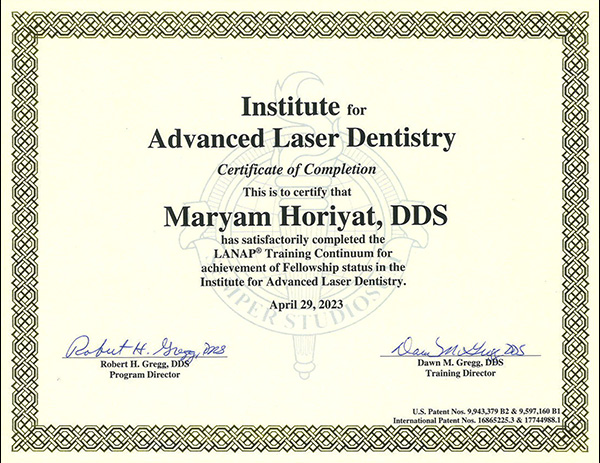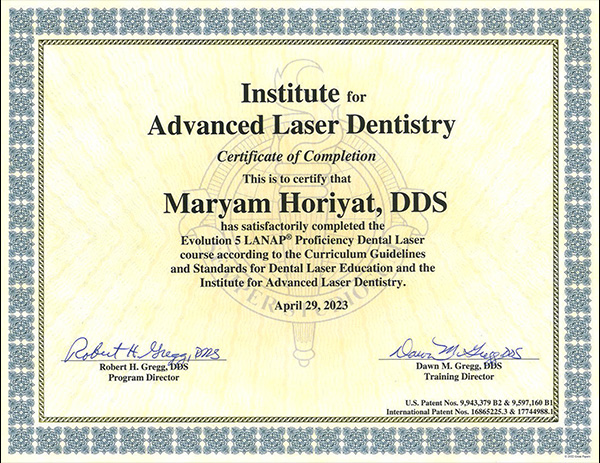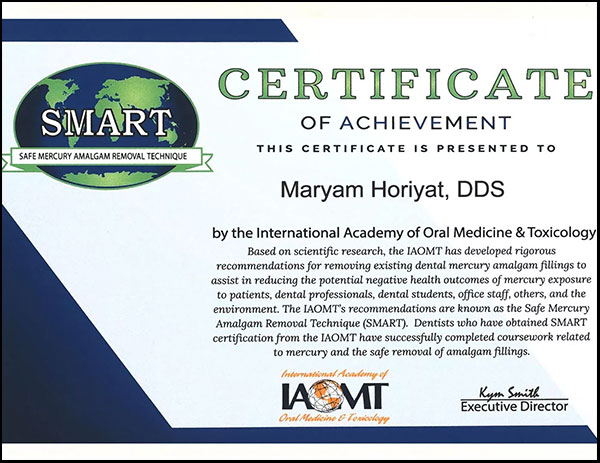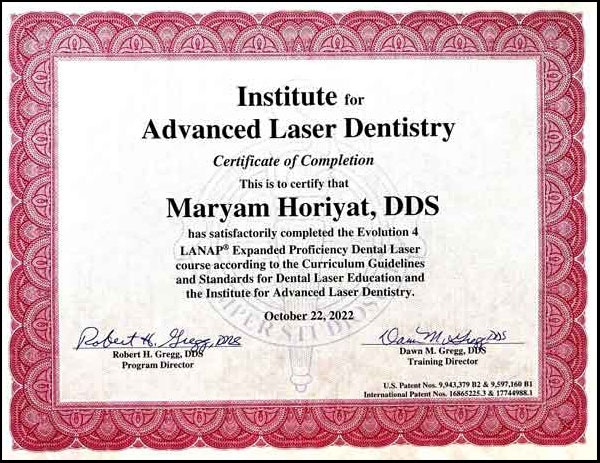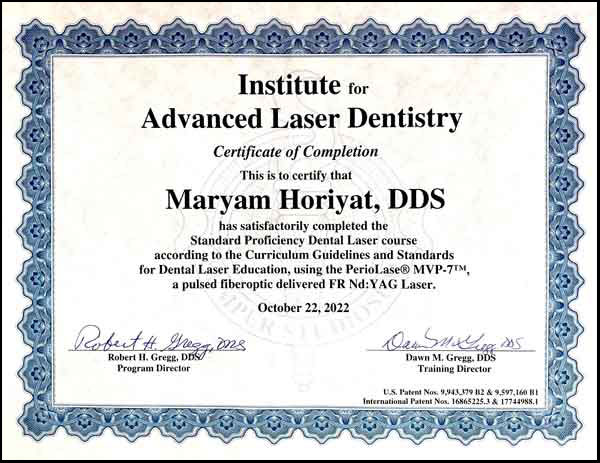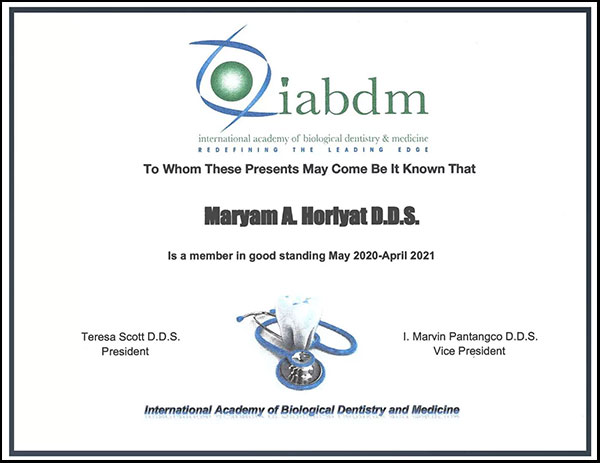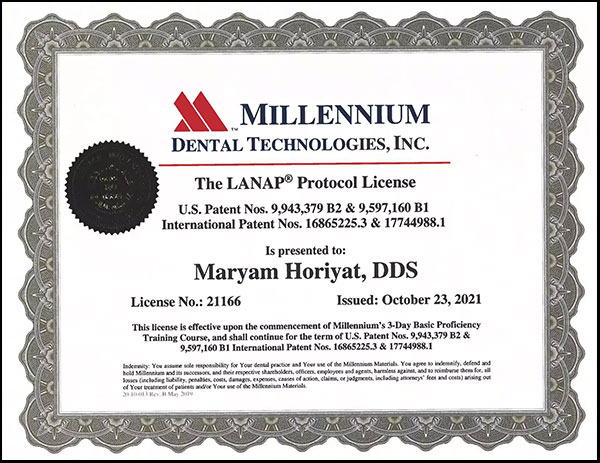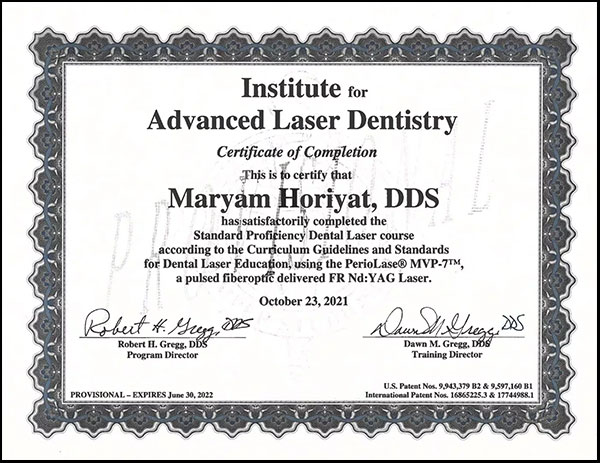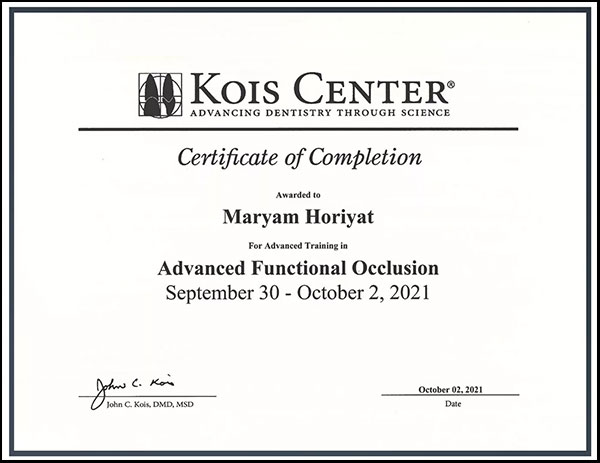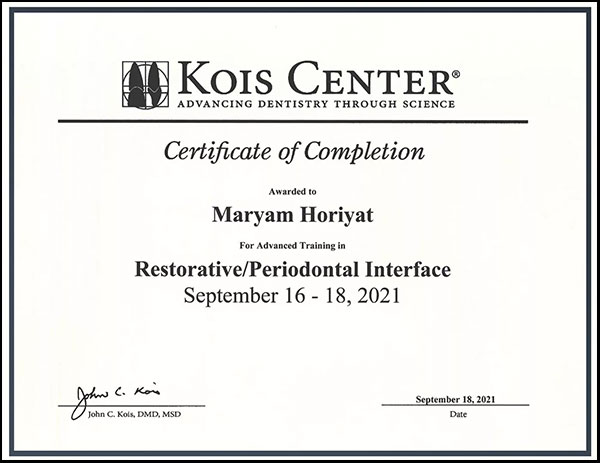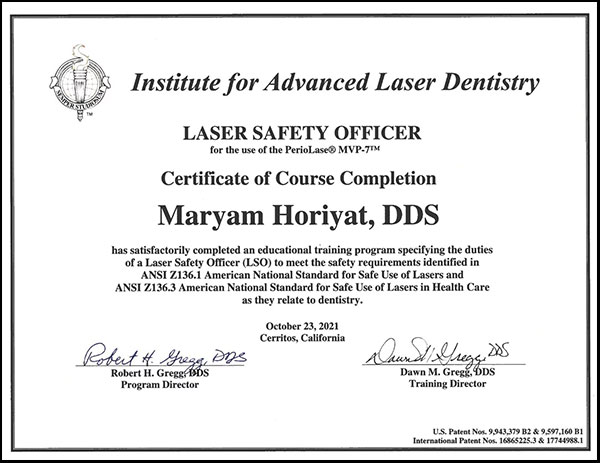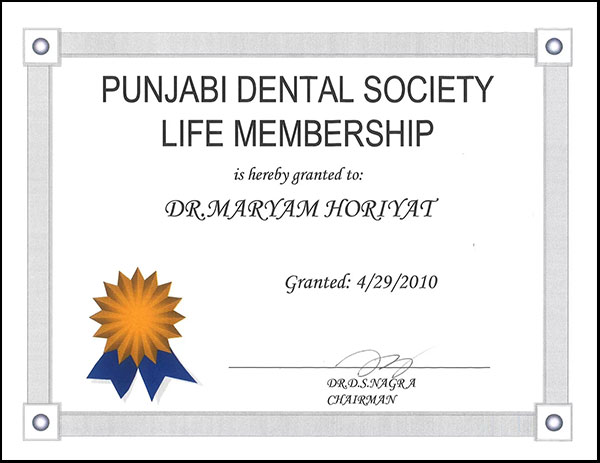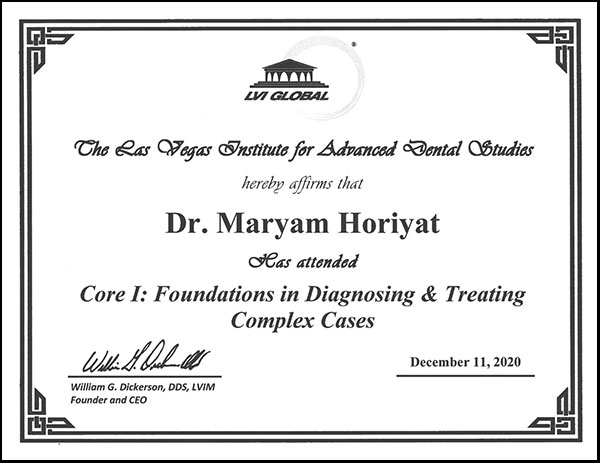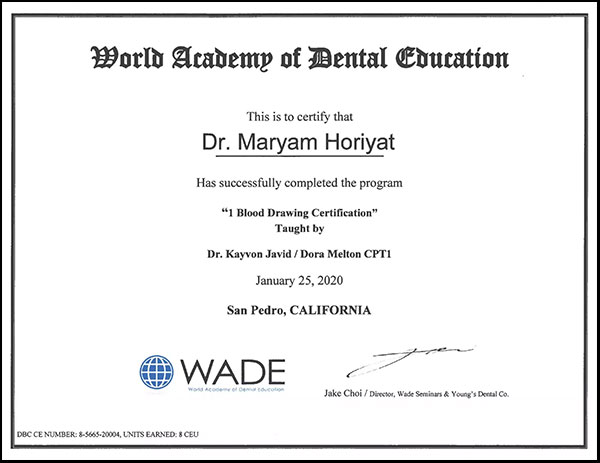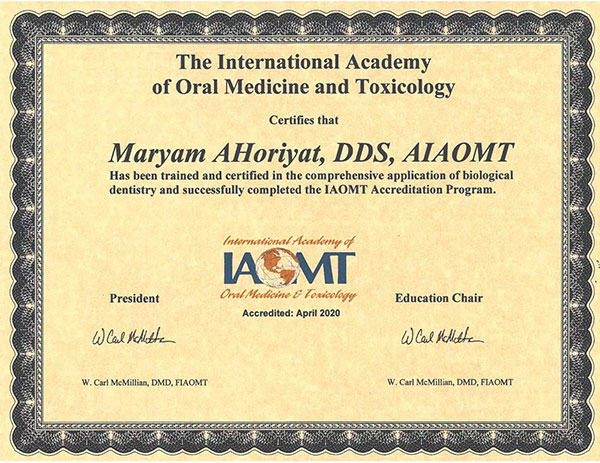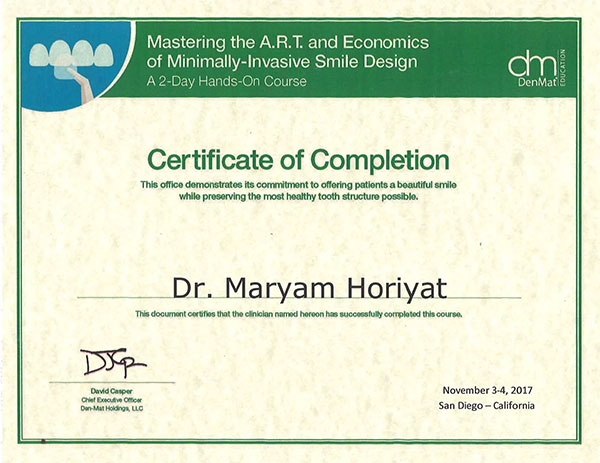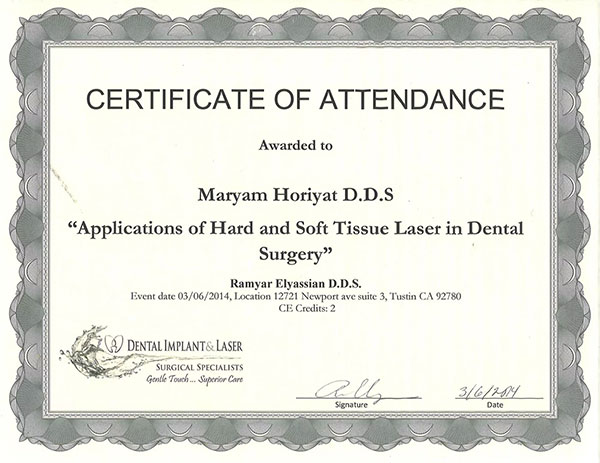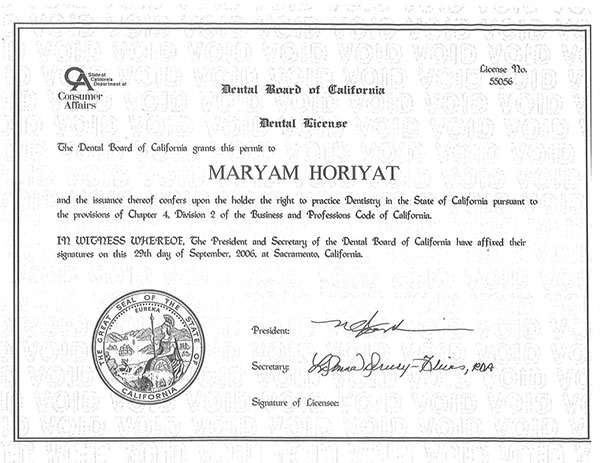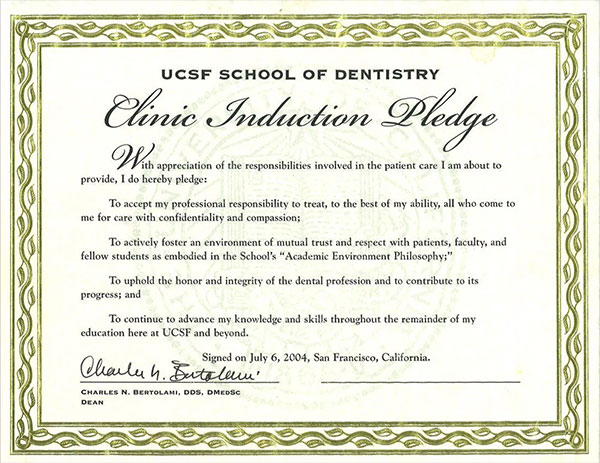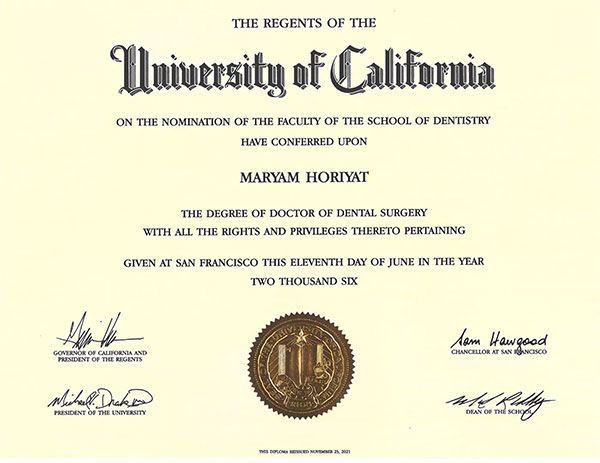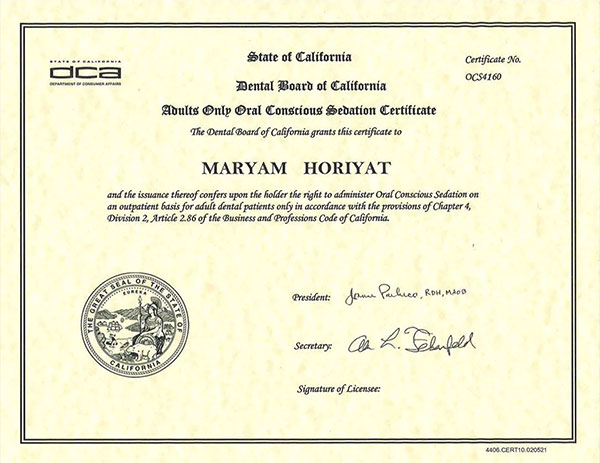Solutions for a Healthy & Good Night Sleep
Not everyone who snores has sleep apnea & Not everyone who has sleep apnea snores.
Are you drowsy or fatigued during the day with no explanation? Do you snore loudly or wake up breathless in the middle of the night? If you’re experiencing any of these symptoms, it’s not normal and healthy.
Most people think that snoring is just what some people do. However, sleeping should be a silent activity. If you are not suffering from a cold or congestion, snoring is not natural. When you are awake or asleep, breathing effortlessly is essential for wellness; however, snoring indicates that there is a disturbance in normal and healthy breathing.
While snoring is a common problem for many people, it can also be a sign of other major health complications. It is estimated that more than 80 million people in North America snore while sleeping, which not only affects the quality of sleep of the person snoring but also the quality of sleep of their loved ones and other family members. Luckily, there is a way to treat chronic snoring.
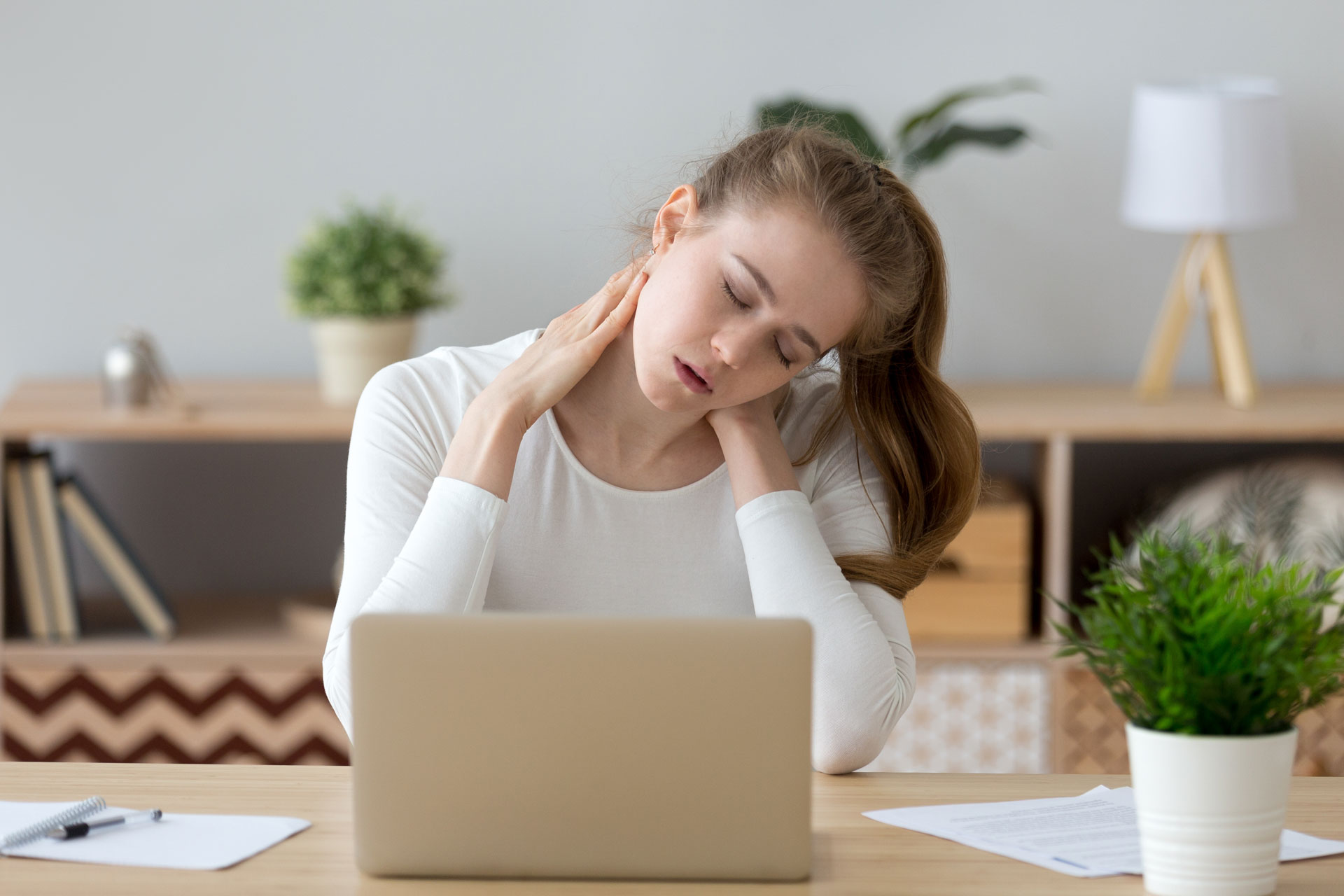
Snoring & Sleep Apnea
An obstructed airway interferes with having quality sleep which is one of the most crucial factors for overall physiological health and well-being. Without good sleep, the body, mind, and brain cannot perform the reparative processes necessary to function at an optimal level. An obstructed airway can produce lasting effects in the form of daytime inefficiency, fatigue, confusion, forgetfulness, and lack of focus, which affect whole-body health and wellness.
Dr. Horiyat has been providing her patients with modern sleep apnea and snoring oral appliances and laser therapy that help deliver a quiet and healthy night’s sleep and decrease the risk of developing other medical conditions.
Breathe Better. Sleep Better. Feel Better.
What Is a Normal Breathing?
The airway is key to life. Normal breathing is silent breathing through your nose; it is effortless and quiet. Normal breathing is vital for living a vibrant and happy life and allows our bodies to go into normal deep restorative sleep, and to awake refreshed and ready to take on each new day.

What Is Sleep Apnea & Snoring?
A Hidden Danger & Secret Killer
Sleep Apnea is a condition in which your breathing stops periodically during sleep as many as 20-30 times per hour. Each time you stop breathing in your sleep, the resulting lack of oxygen alerts your brain, which temporarily wakes you up to restart proper breathing. Since the time spent awake is so brief, most people with sleep apnea don’t remember it, and many believe they are getting a good night’s sleep when, in fact, they are not. The constant wake-sleep, wake-sleep cycle prevents those with sleep apnea from achieving deep sleep, resulting in a constant drowsy feeling during the day.
Snoring may be more than a nuisance. When you are awake the tissues in the throat and upper airway are open and allow air to flow to the lungs smoothly, but when a person falls asleep the soft tissues relax and can partially block the airway. The sound you hear from a snore is a vibration caused by an obstruction of the airway. The snoring sound comes from the uvula, the back of the tongue, or the other soft tissues of the throat flapping as air passes over them when you breathe during sleep. It can be associated with several types of sleep disorders; the most common is Obstructive Sleep Apnea (OSA) and Upper Airway Resistance Syndrome (UARS). All of these have one thing in common – you are not breathing normally while you sleep, and you need to consult a health care provider to receive the help you need to get a better night’s sleep.
The air obstruction concern in both sleep apnea and snoring is that the collapse of the airway causes a decrease in airflow to the lungs and low circulating oxygen in the blood, which will lead to a lack of adequate oxygen to the brain and other vital organs. Not only does snoring affect your sleep, but untreated snoring can increase your risk of diabetes, high blood pressure, heart failure, and stroke.
In children, snoring should never be ignored; it may increase the risk of attention-deficit / hyperactivity disorder (ADHD) and other behavioral problems. Talk to your child’s healthcare provider right away if you have witnessed your child snore or stop breathing while they sleep.
The Reasons for Obstructed Airway
Many factors need to be considered when determining why a person has an obstructed airway during sleep. Some of the causes can include, but are not limited to:
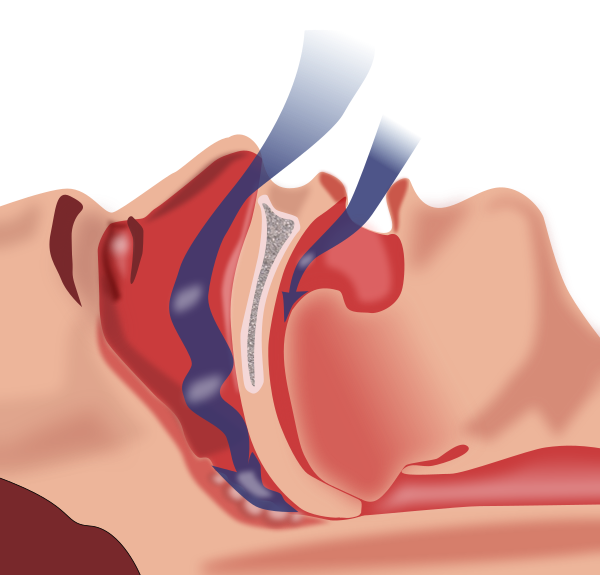
Sleeping on your back can increase the severity of an obstructed airway.
Enlarged tissues can contribute to a narrow airway.
Obstruction in the nasal passageway can cause snoring.
Causes the tissues to relax more than normal increasing the risk of airway blockage.
Especially around the neck can increase the risk of airway blockage through excess or enlarged tissues.
Any sedatives or airway irritants can increase the risk of airway collapsibility.
Airway Obstruction Statistics
- 1 in 3 adults snore on a regular basis and up to 50% snore occasionally.
- Up to 80 million regularly adults in the United States experience airway obstruction.
- Snoring can be inherited. Nearly 70% of snorers have a hereditary link.
- Men snore at a ratio of 2:1 to women. The gap narrows as women get older and reach menopause.
- Up to 59% of people report that their partner snores in bed.
- Snorers are 3 times more likely to suffer adverse health conditions than non-snorers.
What Causes Abnormal Breathing?
Snoring & Sleep Apnea are two unhealthy conditions that disturb a normal breathing pattern due to blocked airways and ultimately cause major health complications. However, millions of people around the world simply can’t breathe normally- especially at night. Some people are already diagnosed with these conditions and are required to use a CPAP machine but cannot comply with CPAP. Some people have never sought help and continue jeopardizing their health.
WHEN SLEEP IS CONSISTENTLY INTERRUPTED BY SNORING OR SLEEP APNEA, YOUR HEALTH, MOOD, & DAILY FUNCTIONING CAN BE IMPACTED. BUT WE CAN HELP. At Aria Dental we offer sleep apnea testing. If you get diagnosed with sleep apnea, our expert can prescribe the appropriate treatment. Depending on your situation, treatment may involve an oral device that we can custom-create for you.
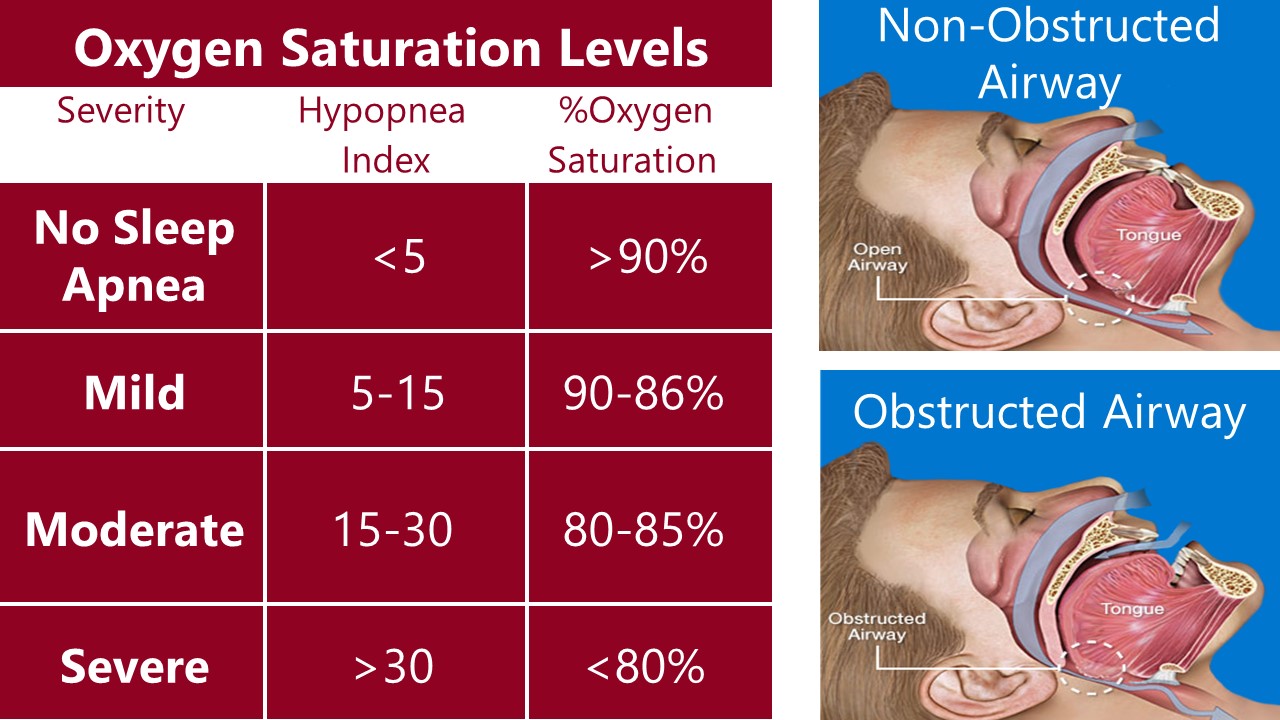
Don’t Let the Danger of Sleep Apnea or Snoring Affects Your Overall Health!
Schedule a consultation appointment to see Orange County’s top dentist, Dr. Maryam Horiyat.
Call or Text Now!
Contact Us to Get on the Path to Start Feeling Better & Living More Comfortably
(949) 364-9600
Different Types of Sleep Apnea
There are three categories of sleep apnea:
- Obstructive Sleep Apnea (OSA) is the most common type of sleep apnea and occurs due to a physical blockage, usually the collapsing of the soft tissue in the back of the throat.
- Central Sleep Apnea (CSA) is less common than OSA in which breathing stops because the muscles involved don't receive the proper signal from the brain.
- Complex Sleep Apnea is a "mixed" or "complex" sleep apnea which is the combination of obstructive sleep apnea and central sleep apnea.
Mallampati Scores to Predict OSA
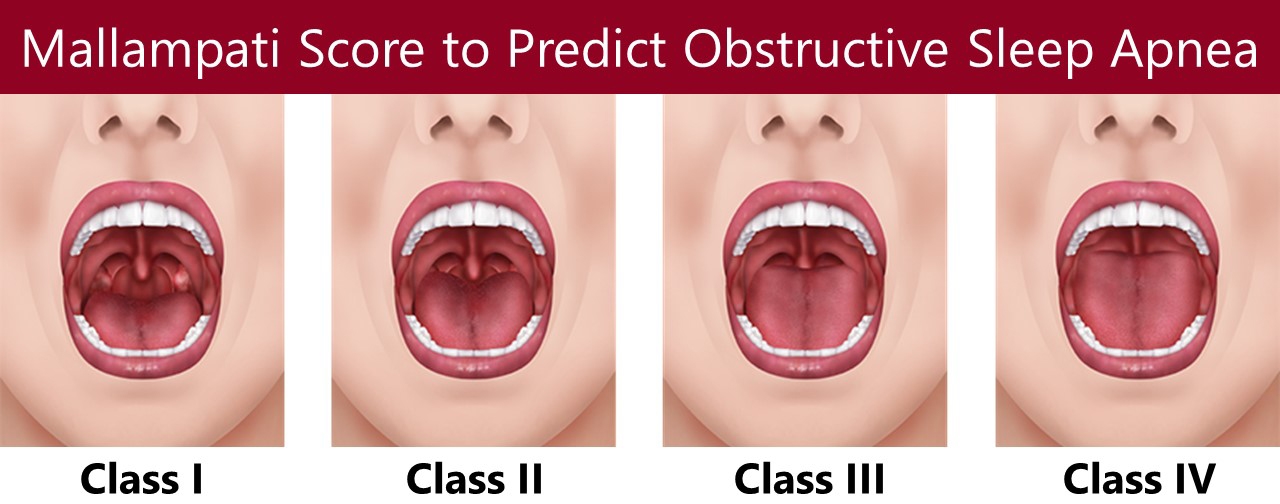
- Mallampati I
When we look inside, if we can see the bottom of the uvula, we score that as Mallampati I since the airway is very open.
When we look inside, if the tongue is covering all of the uvulae, we score that as Mallampati IV since the airway is very closed.
- Mallampati II
When we look inside, if the tongue is covering part of the uvula, we score that as Mallampati II since the airway is mostly open.
- Mallampati III
When we look inside, if the tongue is covering most but not all of the uvula, we score that as Mallampati III since the airway is mostly closed.
- Mallampati IV
When we look inside, if the tongue is covering all of the uvulae, we score that as Mallampati IV since the airway is very closed.
Take Epworth Sleep Apnea Self Test
Factors Affecting the Development of Snoring and Sleep Apnea
Hereditary Diseases
Overweight
Smoking & Drinking
Sleeping Pills
Hormonal Disorders
Short & Thick Neck
Sleep Apnea Can Cause Many Dangerous Medical Conditions
If it is not treated properly it can lead to several dangerous side effects such as heart attack, diabetes, depression, chronic fatigue, risk of car accident, and impotence.
Heart Attack
Diabetes
Depression
Importance
Chronic Fatigue
Common Symptoms of Sleep Apnea
The following symptoms can indicate the presence of Sleep Apnea. If you notice one or more of these, contact our practice.
- Insomnia or Difficulty Sleeping
- Loud Snoring at Night
- Headaches Upon Waking in the Morning
- Falling Asleep Unintentionally during the Day
- Extreme Drowsiness throughout the Day
How to Stop Snoring & Sleep Apnea
Just because you snore or have sleep apnea doesn’t mean you have to live with it. There are many treatment options to get rid of snoring or manage OSA. Before initiating any treatment, it is important to rule out any associated sleep disorders that may be the cause of the snoring.
Treatment Options
NightLase® Laser Therapy
Fontana’s NightLase therapy is a leading-edge laser procedure for increasing the quality of a patient’s sleep, it is a NON-invasive, NO appliances, simple, safe, and an effective way of reducing or eliminating the amplitude of snoring using a gentle laser treatment of the mucosa tissue.
Laser energy is used to heat the tissues of the airway causing a tightening effect which helps to keep your airway open. NightLaseTM is performed with approximately three short treatments spaced over two months. Each treatment lasts 15 minutes and requires no anesthesia. The procedure is comfortable, and you can resume your daily routine immediately afterward. Results are often seen after the first session.

Benefits of Snoring Laser Therapy
- QUICK & EFFECTIVE
- NO SURGERY
- PAINLESS & COMFORTABLE
- NO DOWNTIME
- NO INJECTION OR PAIN
- AFFORDABLE
Oral Appliances
Get Relief from Mild-to-moderated OSA Without CPAP or Surgical Implants
Oral appliances, also known as mandibular advancement devices, are custom fit devices that are worn only at night that fit much like a sports mouth guard. It supports the jaw in a forward position and is designed to help maintain an open airway.
Oral appliances can be used alone or in conjunction with other means of therapy such as continuous positive air pressure (CPAP), positional therapy or surgery to reduce snoring and treat obstructive sleep apnea by preventing the airway from collapsing.
Advantages of Oral Appliance Therapy
- Oral appliances are comfortable and easy to wear. Most people find that it only takes a couple of days to become acclimated to wearing the appliance.
- Oral appliances are small and convenient, making them easy to carry when traveling.
- Treatment with oral appliances is reversible and non-invasive.
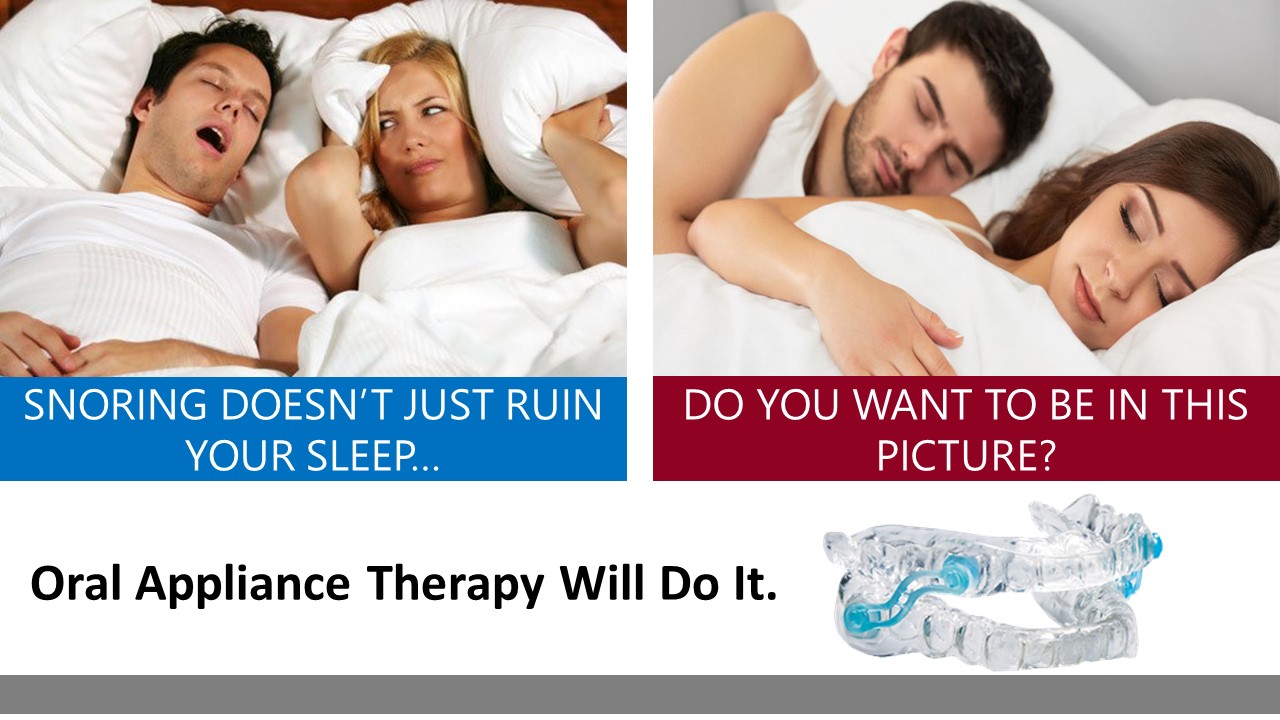
Types of Oral Appliances
There are over 100 custom oral appliances approved by the FDA. These appliances fall into three types of oral appliances for the treatment of obstructive sleep apnea.
Mandibular advancement splints are by far the most numerous types on the market. They all function to reposition and maintain the lower jaw (mandible) forward in a protruded position during sleep. This serves to open the airway by indirectly pulling the tongue forward.
Dr. Horiyat is a certified provider of the Vivo-DNA Appliance (Daytime Nighttime Appliance) system. She can now treat the teeth, jaw, temporomandibular joint (TMJ), face, and airway for optimal growth and development by engaging the patient’s underlying genetics without the use of surgery with the help of DNA appliance therapy. DNA appliance.
There are only a few tongues retaining devices available, but they have been well studied and shown to be effective in many patients by means of a suction bulb that hold the tongue. When the tongue is in a forward position, the back of the tongue does not collapse during sleep and obstructs the airway in the throat.
The SomnoDent (COAT) works by gently holding your jaw forward during sleep, which improves the patency of the airway reducing snoring and sleep apneas. It is a comfortable two-piece “mouthguard” that can be adjusted to bring your jaw further forward if needed, and it is fitted by a dentist trained in sleep medicine. There is an increasing body of evidence to show that the SomnoMed COAT is effective because of the high level of patient comfort. Patients wear their SomnoDent on average 7.5 hours per night. While average nightly usage of CPAP in a recent study was 3.3 hours per night.
Is a MAS Comfortable?
The answer is simple — YES! A mandibular advancement device is made to be comfortable so that you can sleep without even noticing you’re wearing it. It does not prevent you from breathing with your mouth open and will even eliminate snoring for patients with sinus congestion or allergies. You may experience some slight stiffness of the jaw for the first few mornings after wearing the device, but this feeling is only temporary and will go away after you wake up and remove the device.
To learn more about a mandibular advancement device, call Aria Dental or email us to schedule a consultation appointment.
Oral appliances can be used alone or in conjunction with other means of therapy such as continuous positive air pressure (CPAP), positional therapy, or surgery to reduce snoring and treat obstructive sleep apnea by preventing the airway from collapsing.
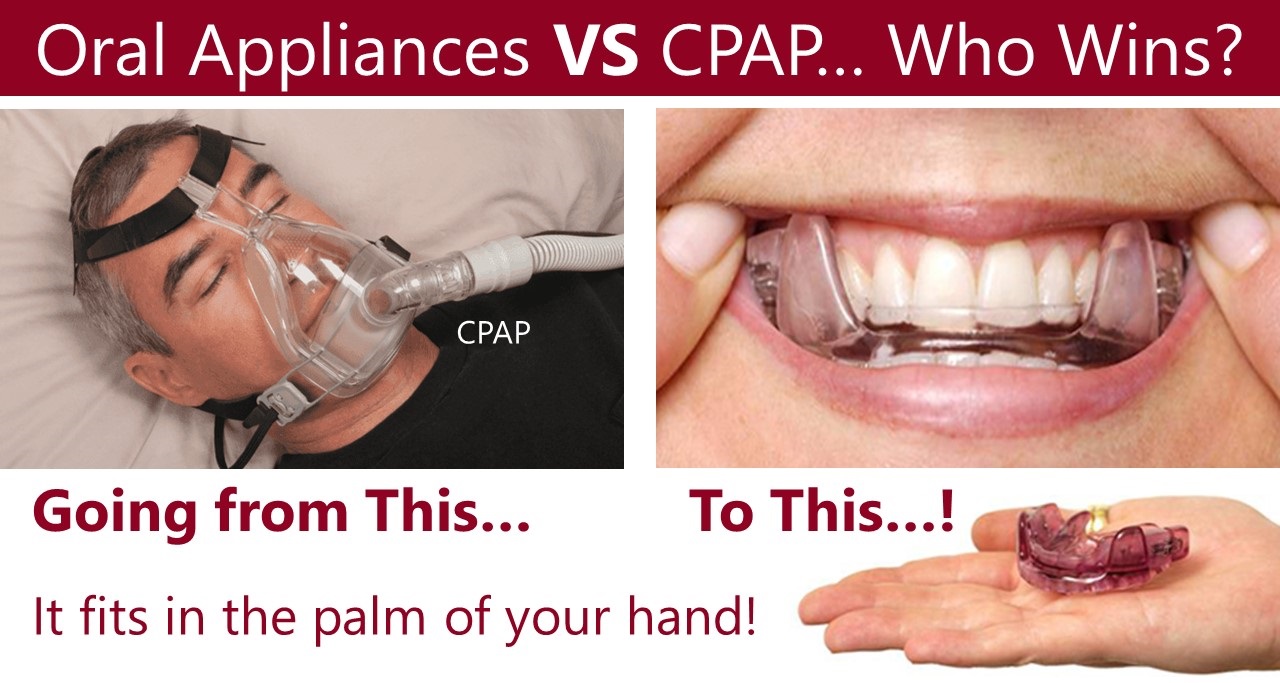
CPAP
CPAP (continuous positive air pressure applied through a nasal mask) is the most common and standard form of treatment for obstructive sleep apnea (OSA). The CPAP machine consists of a face or nasal mask that is connected to a pump, providing a positive flow of air into the nasal passages to keep the airway open. This pressure ensures that the airway doesn’t collapse during sleep. CPAP is recommended as the first line of treatment for patients with severe obstructive sleep apnea. Patients with mild-to-moderate sleep apnea can usually choose which therapy they would prefer.
Common CPAP Side Effects and Complaints
- Noise: The CPAP machine is too noisy to allow sleep.
- Discomfort: Caused by straps and headgear or poor fit.
- Relationships: The fear of compromised relationships.
- Restrictions: Inability to move or change positions during sleep.
- Perceived Effectiveness: Lack of noticeable symptom improvement.
- Tooth Movement: Pressure on the upper lip causes tooth-related problems, including shifting in tooth position and tooth pain.
- Claustrophobia: Feeling of suffocation from the mask.
- Irritation: Mask irritations on the skin and nose
- Air Intake: Air trapped in the stomach or sinuses.
- Intolerance: Patients often report removing the mask during sleep without knowing it or general intolerance of the pressure.
Surgery
While not considered the first line of treatment for snoring or sleep apnea, surgery may be an effective option for patients who cannot tolerate CPAP or oral appliance therapy. With many surgical options available, it is up to the surgeon to find where the obstruction is in the patient’s upper airway or nasal passage and determine what the best solution is. Surgery is typically more effective in the treatment of snoring than sleep apnea.
A BETTER MARRIAGE & LIFE!
Get Snore-Free & Sleeping Soundly with Dental Sleep Solutions
Call or Text Now!
Call or Text Us to Consult with Dr. Maryam Horiyat
(949) 364-9600
Do Most People Sleep Better Alone?
Did you know that having a regular bed partner can improve your quality of sleep? Unfortunately, this is only the case in the absence of snoring. Anyone who has slept with a person who snores knows it can disrupt his or her sleep. In a poll by the National Sleep Foundation, 41% of respondents rated their partner’s snoring as having a big impact on their ability to get a good night’s sleep in the past two weeks.
Bed Partner Snoring Statistics
- Up to 59% of people report that their partner snores in bed.
- 23% of couples sleep in separate beds.
- Over 1/3 of couples report disharmony within the relationship due to snoring.
- One hour of sleep per night is typically lost from the snorer’s partner; he/she may wake up as many as 21 times per hour.
Snoring’s Effects on the Bed Partner
Second-hand snoring can cause the bedpartner to suffer the same daytime sleepiness problems that their snoring partner experiences which may lead to marital disharmony.
Bed partners of snorers may wake up several times per hour, which can add up to an hour of sleep lost every night. This effect, known as “Spousal Arousal Syndrome”, results in bed partners waking up tired and irritable and leads to deterioration of relationships, depression, and other adverse health consequences. Research in 2003 showed that the bedpartners of snorers may experience noise-induced hearing loss over time. The effect of the noise on a sleeping partner of a snorer can also raise blood pressure in direct relation to the intensity of the noise. High blood pressure is a known risk factor for stroke, heart disease, kidney disease, and dementia.
Stopping Snoring Can Restore Health and Harmony for Both Partners
Many couples want nothing more than the comfort of sleeping with their mate but are just unable to tolerate the noise and disruption of snoring.
Studies show that when the snoring or sleep apnea of one partner is treated, the bed-partner’s sleep quality is improved leading to better health. One study showed that when symptoms were treated, their partners’ sleep efficiency increased by 13%. Other studies demonstrate that the partner’s mood, daytime alertness, quality of life, and personal relationship with the snorer are improved when the snoring is resolved.
If your partner’s snoring is keeping you up and putting a strain on your relationship, you are not alone.
What Can You Do If Your Bed Partner Snores?
Talk to your partner about the potential seriousness of the problem and get him/her to a physician or dentist trained to recognize and treat snoring and sleep apnea problems. Realize, of course, that there may be denial, and perhaps embarrassment on the part of your partner.
Before you seek treatment for snoring, it’s important to rule out any sleep breathing disorders such as obstructive sleep apnea that may be the real cause of the snoring. Usually, it’s the bed partner who notices the signs of sleep apnea. Sleep apnea usually interrupts loud snoring with a period of silence followed by a loud gasp. Treating only the symptom of snoring in an individual with sleep apnea can be extremely dangerous.
If snoring, sleep apnea, and their related side effects are negatively affecting your relationship with your bed partner, oral appliance therapy has the potential to provide you and your bed partner with the quiet, peaceful sleep necessary to sleep better- together. Get started now with a consultation with your sleep physician or your sleep apnea-trained dentist.
Together with Other Specialists, Dr. Horiyat Has Helped Many Patients to Improve Their Sleep & Energy
Contact Us at (949)364-9600 to See How Oral Appliances or Laser Dentistry Can Improve Your Life
What Should I Do If I Suspect That Someone in My Family Suffers from Sleep Apnea?
If you have any symptoms, it is advisable to make an appointment with a doctor. Timely advice will prevent negative consequences for your health.
Contact our practice, and we can provide a home sleep apnea test with one of the most reputable companies or refer you to our local sleep apnea specialist. The specialist may recommend a sleep study to diagnose the precise extent of the problem and can prescribe appropriate treatment. Depending on your situation, treatment may involve an oral device that we can custom-create for you.
Premier Holistic & Biological Dentist for Your Wellness
Dr. Maryam Horiyat
in Orange County, CA

Sleep Apnea & Snoring Center
OUR Certified Holistic Dentists Experienced Implant Specialists Personal Attention & Gentle Care Holistic & Biological Approaches Outstanding Success Rate Modern Innovative Technology Zirconia Implants from Reputable Companies Comfortable IV Sedation Options Minimal Invasive Techniques Life Changing Stories
OUR Knowledgeable & Certified Holistic Dentists Exceptional & Experienced Implant Specialists Personal Attention & Gentle Care Holistic, Biological & Integrative Approaches Outstanding Success Rate & Highest Standards Modern Innovative Technology, Equipment Zirconia Implants from Highly Reputable USA Companies Comfortable Drug-Free, Oral, Or IV Sedation Options Modern and Minimal Invasive Techniques Satisfied Patients and Life Changing Stories

To Request an Appointment
Please Call, or Text, or Book Online
Make Restless Nights A Thing of The Past!
Experience World-Class & Modern Sleep Apnea Treatment At Aria Dental Care of Mission Viejo








